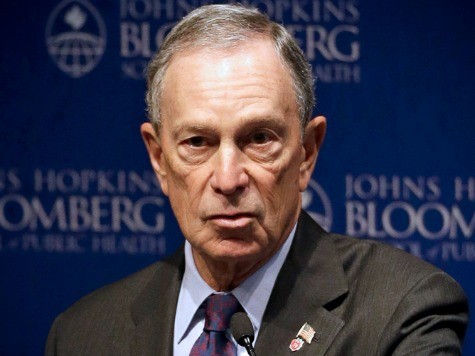
Under Mayor Mike Bloomberg, New York City was an anti-tobacco zealot’s utopia. Nagged by Bloomberg, the city forced bar and restaurant owners to ban smoking in their premises and prohibited smoking in public parks. The city spent millions on public advertising and education and enacted the highest cigarette taxes on the planet. The oft-stated goal was to force people to quit smoking. It isn’t working.
According to the city’s Department of Health, the number of adults who smoke has increased almost 15% in the last three years. The increase comes even as smoking rates have fallen throughout the rest of the country.
“We’ve had a plateau in the smoking rate for a couple of years, but now it is a statistically significant increase,” the city’s health commissioner, Dr. Mary Bassett said. “We now know the rise is real and we aim to do something about it.”
Naturally, the public bureaucrats at the Health Department blame the increase in smoking on city budget cuts. Because of the recession, the city cut back on its expensive TV advertising urging people to quit. But for this advertising, apparently, people will forget that smoking is unhealthy.
Personally, in a libertarian flight-of-fancy, I’d like to think that some of those mythically “tough” New Yorkers were rebelling against the increasing petty nuisances the government scatters through our daily lives. That dream of quiet civil disobedience died when we surrendered water bottles at a TSA security line, though.
One intriguing possibility for the increase is an unintended consequence of the sky-high cigarette taxes in the city. In New York City, the government imposes a tax of $5.85 on every pack of cigarettes, pushing the average retail price to around $12 a pack, significantly higher than any neighboring state.
As recently reported, the high cigarette taxes in New York have been a boon to organized crime. A retired official from the federal Bureau of Alcohol, Tobacco and Firearms said recently that dealing in black-market cigarettes was now more profitable than the narcotics trade. It is estimated that over half the cigarettes purchased in New York are smuggled in from other states or Indian reservations.
This illegal trade in untaxed cigarettes exists explicitly because the tobacco excise tax is so high. Without the arbitrage between the legal price and what people would be willing to pay, there would be no illicit gain. Because of this trade, smokers may be able to pay far less for cigarettes than they would with a more sane tax policy.
The high tax, in other words, has created a black-market that makes it cheaper for people to continue to smoke. Only government can pull off such a trick. The street price of heroin has declined since the government launched its war on drugs. There is no reason to think cigarette smokers would behave any differently.

COMMENTS
Please let us know if you're having issues with commenting.